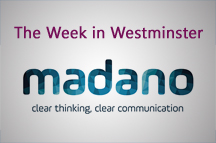 Days have long turned into months (just the 23 to be precise) since the referendum, but it appears likely that it may be years before Brexit is complete. As Business Secretary Greg Clark was reported to have put it this week, certain ‘elements might take a little longer’.
Days have long turned into months (just the 23 to be precise) since the referendum, but it appears likely that it may be years before Brexit is complete. As Business Secretary Greg Clark was reported to have put it this week, certain ‘elements might take a little longer’.
House of Commons leader Andrea Leadsom was tasked with delivering the latest status report, admitting that the EU Withdrawal Bill might not be revisited until after the Whitsun recess beginning next week, meaning yet further risk of not meeting the March 2019 deadline.
With Brexit still being the unforgiving black hole of the news agenda, media have reported clear Cabinet splits over potential customs arrangements ahead of the next round of negotiations. Prime Minister Theresa May elected to set up two working groups to explore how to make trade deals with non-EU countries and a solution based on using technology to minimise the need for customs checks after Brexit. Officials in Downing Street maintain that the PM is open to both options: the “customs partnership” model, under which Britain would collect EU tariffs, and the “maximum facilitation” (Max-Fac) option that proposes using yet-to-be invented technology to reduce checks on goods. Watch this space.
Labour were resolute in their response squarely focusing on the recent failings in PMQs. Labour Leader Jeremy Corbyn facetiously stated the Government was “so busy negotiating with itself it cannot negotiate with anybody else”. He urged Mrs May to step down and “make way” for a Labour government.
Tributes continued to flood in from across the political sphere following the passing away of former Labour Minister, Dame Tessa Jowell. Among moving tributes, Theresa May said her legacy would “live on” and hailed her efforts to raise awareness and investment in the fight against cancer. Government fittingly has announced it will double the annual spend on research into brain cancer in honour of Dame Tessa, with a new foundation set up by the late Labour grandee now set to receive £40 million a year in funding.
 Additionally, in this week’s series of parliamentary ping-pong, the Commons failed to agree again on the legal framework for nuclear safeguards in the UK to replace the Euratom Treaty. The Nuclear Safeguard Bill, will now return to the Lords after MPs disagreed with the upper house’s third amendment.
Additionally, in this week’s series of parliamentary ping-pong, the Commons failed to agree again on the legal framework for nuclear safeguards in the UK to replace the Euratom Treaty. The Nuclear Safeguard Bill, will now return to the Lords after MPs disagreed with the upper house’s third amendment.
My favourite moment of the week came when Conservative MP Huw Merriman called for an adjournment debate in the Commons in recognition of the recently departed Arsenal manager Arsène Wenger and his contribution to English football. It certainly was one of the finer moments in parliament as rare cross-party agreement emanated with some calling for a political career switch for Wenger.
Jeremy Corbyn, an unfamiliar face in adjournment debates, made it a priority to place on record the great contribution that the Frenchman has made to his very own constituency in which the Emirates Stadium resides. Corbyn did not stop there, backing calls for an honorary knighthood and lauding Wenger for making a more ‘peaceful world’. While parliament navigated many separations this week, including that of Wenger from his beloved Arsenal, many in Westminster and the country turned their attention to a unification. The upcoming Royal wedding and a nationwide celebration of two young people in love can helpfully be a national tonic and cement a “special relationship”, without necessitating a presidential visit.














